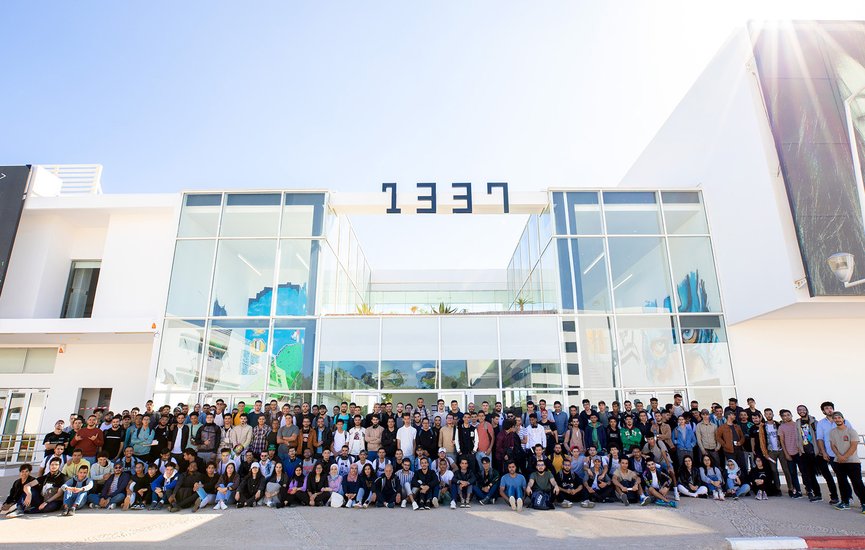Rabat – 1337 School, a coding institution founded by OCP Group and Mohammed VI Polytechnic University (UM6P), claimed the top spot at the Moroccan Collegiate Programming Contest (MCPC), which took place from September 19-21.
The contest, held at the UM6P College of Computing in Rabat, saw 44 teams from 31 institutions across 17 Moroccan cities compete. The competition initially attracted 72 applications, from which 44 teams were selected to participate.
At the end of the event, 1337 School emerged as the winner, followed by Mohammadia School of Engineers (EMI) and the National School of Applied Sciences (ENSA) in Oujda. ENSA in Agadir ranked fourth, while UM6P CC placed sixth.
Jalal Maaouni, a 1337 alumnus and former contest enthusiast, played a crucial role in preparing the school’s four teams. According to a statement from OCP Group, Maaouni guided the teams through mock contests, peer-learning code reviews, and real-condition simulations.
“We’ve finally put an end to a frustration that has burned within us for seven years—always within reach, never in our hands. From day one at 1337, our eyes were set on the MCPC trophy,” Maaouni said.
He emphasized that "real results" require patience and pointed out that the 1337 students proved wrong those who had previously labeled them as “just a coding school.”
Ibrahim Mountasser, a member of the 1337 team that secured first place, shared his excitement: "Winning the MCPC means a lot to us. Seeing two 1337 teams take gold felt surreal. The last edition in 2021, we finished second, so close... This year, we had to win. In the end, it was an amazing day."
The competition also served as a qualifier for the Africa and Arab Collegiate Programming Championship (ACPC), which will be held in Egypt in December next year. Six Moroccan teams qualified for the ACPC, which also serves as a pathway to the ICPC World Finals.
The statement concluded, “More than just a competition, this event highlights a growing and strengthening ecosystem: institutions that invest, coaches—often alumni and former contest participants—who pass on methods and rigor, and students who learn to think faster, code better, and collaborate more effectively.”
